In November 2023, 20 tenured professors told a career strategist why they left academia for industry roles. After the reasons were posted on the social-media site X (formerly known as Twitter), Nature asked 11 scientists to tell us why they’re thriving in academia and what fuels their passion for it.
DARYL YEE: Risky research and mentoring
Table of Contents
Materials scientist at the Swiss Federal Institute of Technology in Lausanne (EPFL), Switzerland.
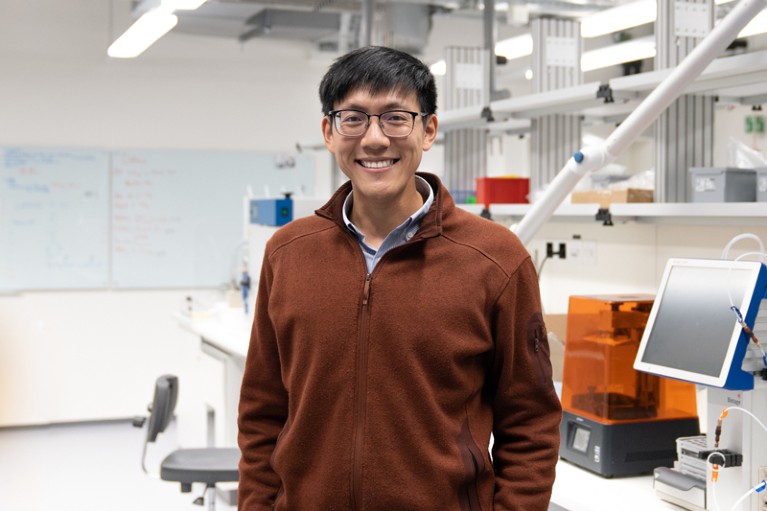
Materials scientist Daryl Yee can explore risky ideas in his academic research.Credit: Titouan Veuillet, EPFL
Two things come to mind: risky research and mentorship. I love that my job lets me work on risky, interesting problems, such as 3D printing DNA, that might or might not align with what industry is currently exploring. It’s fun to approach problems from unusual perspectives and see what we can learn along the way.
I also really enjoy teaching and mentoring students — helping them to learn concepts and grow as scientists. It is so rewarding to see students have those ‘aha’ moments when they understand how to overcome problems.
KATRINA CLAW: My community motivates me
Geneticist at the University of Colorado School of Medicine in Aurora.
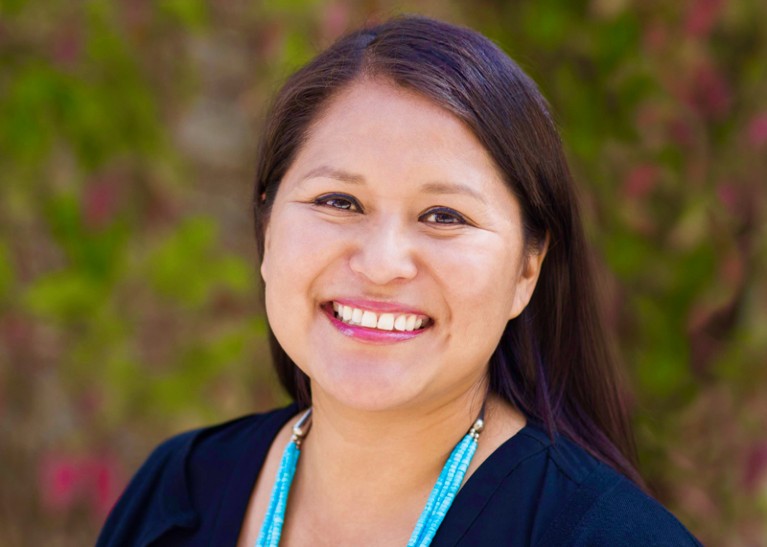
Katrina Claw is motivated by her collaborations with Native American communities on pharmacogenetics research.Credit: DBMI
Being in academia is a privilege and I never forget that. My dad was a heavy-equipment operator for more than 40 years, and in our tribe’s traditional ceremonies, he always prayed for me to have a job in which I would stay clean all day and have an office. I not only have an office with views of the Rocky Mountains, I also have a laboratory full of pristine equipment and lead a successful research programme that trains students and collaborates with Native American communities on pharmacogenomics and the cultural, ethical, legal and social implications of genomics research. My main responsibility is to think all day and write. My community motivates me to continue in academia and to hold my culture and traditions closely in my work. I’ve stayed in academia because no one has kicked me out yet (haha), and because I love it.
DEVIN SCHWEPPE: Talking ideas into fruition
Bioanalytical chemist at the University of Washington in Seattle.
I love talking to anyone I want to about anything scientific, letting ideas percolate and then turning that ‘we met at a meeting’ conversation into a project worth pursuing. And next, pitching that idea to mentors, peers and students, and eventually trying to get support and presenting it to the community. And finally, hopefully, you get buy-in and see people use your idea to do something even more amazing than you anticipated. That whole trajectory is what keeps my head above water.
ANKUR SINGH: Thrive with good balance
Bioengineer at Georgia Institute of Technology in Atlanta.
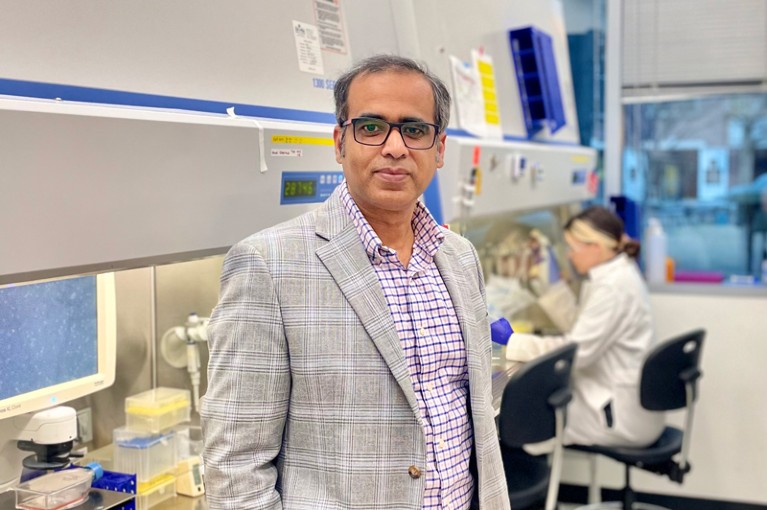
Bioengineer Ankur Singh says he thrives in academia because he has learnt how to keep balanced, mentally and physically.Credit: Ankur Singh
I love academia and research. There is freedom to pursue risky, complex and futuristic ideas with the potential to transform human health and lives. You have opportunities to mentor bright young minds, earn competitive pay along with global recognition and live with a sense of stability in life.
However, academia is cut-throat and highly demanding. I thrive by maintaining a good work–life balance, focusing on my priorities and making thoughtful decisions. It took a few years to realize that I do not need to work outside of 8 a.m. to 5 p.m. on weekdays, or on weekends. I spend a lot of time with my young children and wife and call my parents in India every day. I do whole-body workouts three to five days a week and run half marathons at least once a month. I enjoy grant writing, in which my creativity can shine. I am receptive to peer review. I do not give up. Instead, I compartmentalize my brain, plan and deliver. I thrive because I understand what academia demands and how to navigate it without burning myself out.
PAUL MACKLIN: Reshaping the academic system
Mathematician and associate dean for undergraduate education at Indiana University in Bloomington.
I stay for the opportunity to find connections between fields, such as using insights from immunology to improve my cancer simulations, or by adopting approaches from education to help make my software more robust and usable. I try to keep things fresh by working on a mixed portfolio of projects: basic sciences in multicellular systems biology, methods development in our simulation toolkits and practical applications in cancer immunology and tissues.
As my career has advanced, the chance to make a difference for others has motivated me to stay as well. I’ve reached a leadership position as an associate dean, in which I cannot just complain about ‘the system’, but instead help to reshape it to be more equitable and transparent, and to open up opportunities for our students.
JONATHAN MOORE: Charting your own path
Applied aquatic ecologist at Simon Fraser University in Burnaby, Canada.
I value the intellectual freedom — learning and thinking about what type of research is important to do and then doing it. Intellectual independence is amazing, being able to chart your own path forwards. Another thing is getting the chance to work with young, emerging scientists. That continual influx of energy and different brains and personalities is super exciting. I love getting to know people and thinking about how their work can advance, and trying to provide them with a stepping stone for their careers.
ELANA FERTIG: Transdisciplinary happiness
Computational oncologist at Johns Hopkins University School of Medicine in Baltimore, Maryland.
Although high-quality research can be done in both academia and industry, scientific exploration for its own sake is best suited to academia. This remains my driving force for staying, despite the challenges. As a transdisciplinary scientist, being surrounded by specialists both in mathematical theory and biomedical science is crucial to my success, but also to my happiness. There are of course numerous pros to industry, such as larger-scale projects, team-based missions and products as a main goal. Everyone can and should find their own path, in the environment that best suits them. For myself, taking a greater than 50% pay cut to return to academia was the best decision of my life and I have never looked back.
MYUNGJAE LEE: Guiding future generations
Materials scientist at Seoul National University.
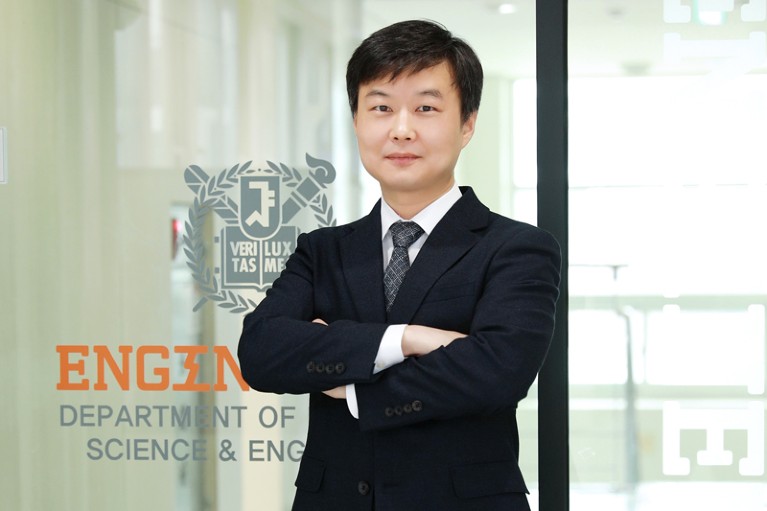
Materials scientist Myungjae Lee prioritizes building relationships with students and mentoring them.Credit: Department of Materials Science and Engineering, Seoul National University
I remain in academia because of its nurturing environment for personal and professional growth. Academic research encourages critical thinking, interdisciplinary collaboration and intellectual exploration, and allows me to explore ideas that contribute to the advancement of knowledge in my field of optical engineering. This continuous pursuit keeps me engaged and motivated.
One aspect that I particularly enjoy is the opportunity to guide future generations. I build strong relationships with students and dedicate myself to mentoring, just as my mentors did. It’s incredibly rewarding to evolve perspectives and ideas through this process.
YU ZHONG: Exploring the unknown
Materials scientist and engineer at Cornell University in Ithaca, New York.
My decision to stay is driven by several factors. The most important is my passion for exploring unknown puzzles. I enjoy the ‘eureka’ moments. Toward the end of my postdoc, I realized that I was well prepared for and capable of doing academic research. That’s when I decided to stay. Furthermore, the flexible working schedule appeals to me — especially when my family needs me urgently — although the job is not easy.
LANA GARMIRE: Freedom to create and realize
Biomedical informatician at the University of Michigan in Ann Arbor.
I grew up in China, where intellectuals are considered to be among the most respected professionals. My mum was a teacher, and I’ve wanted to be an educator like her since I was little. So why have I stayed in academia? The freedom to think, create and realize an idea. The satisfaction of mentoring students and helping to shape their lives is utterly rewarding — and more important than the relatively low salaries compared with industry.
CHIARA ZURZOLO: Discovery as a team effort
Cell biologist at the Pasteur Institute in Paris.
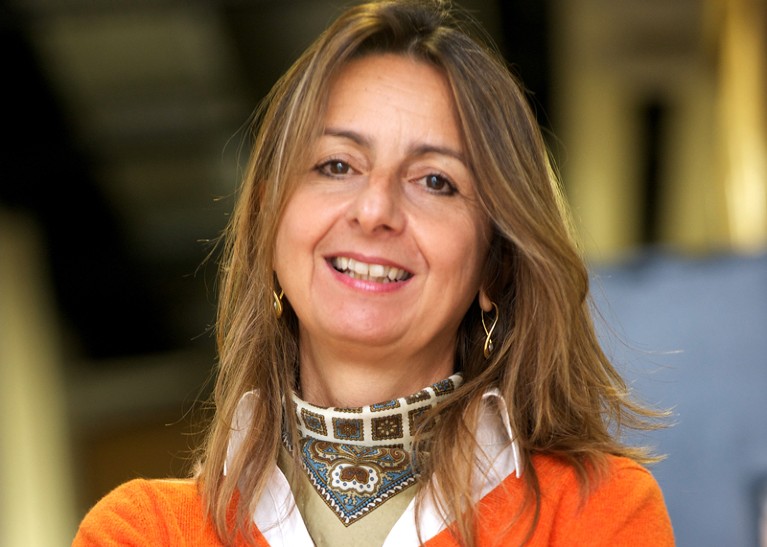
Cell biologist Chiara Zurzolo enjoys the autonomy of academic research and nurturing scientific curiosity in the next generation.Credit: Institut Pasteur/François Gardy
My journey is driven by a passion for understanding how cells communicate and move in conditions such as cancer and neurodegenerative disorders, paving the way for potential cures.
Thriving in academia, for me, means having the freedom to explore uncharted territories. Unlike some industries, in which research tends to be more narrowly focused and directed towards specific goals, academia offers the liberty to follow our curiosity wherever it leads. This freedom is empowering — it lets us address challenging questions and test ideas in a creative environment. Importantly, discovery is a collective team effort.
What keeps me here is also sharing the excitement of unravelling the secrets of cells with the next generation of scientists. The academic journey goes beyond finding answers; it’s about instilling a passion for knowledge and contributing to a legacy of scientific understanding. Whereas some choose industry roles, I choose to remain because of the autonomy to shape my research direction and the joy of nurturing scientific curiosity.
